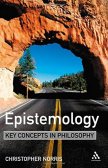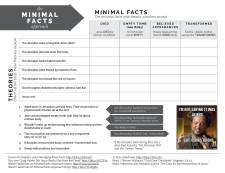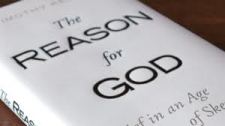“‘If we take in our hand any volume: of divinity or school of metaphysics, for instance; let us ask, Does it contain any abstract reasoning concerning quantity or number? No. Does it contain any experimental reasoning concerning matter of fact and existence? No. Commit it then to the flames; For it can contain nothing but sophistry and illusion.’ [Hume] If, in order to be meaningful, a statement must be either mathematically sustained or scientifically verifiable, then David Hume’s statement itself is meaningless. It is a philosophical solvent that dissolves itself. The emperor has no clothes, while boasting the finest threads,” (*p.63).
“…the statistical probability of forming even a single enzyme, the building block of the gene, which is in turn the building block of the cell, is 1 in 10^40,000. The translation of that figure is that it would require more attempts for the formation of one enzyme than there are atoms in all the stars of all the galaxies in the entire known universe,” (*p.65).
“How does a universe, which itself developed from nothing, impart into every human strand of DNA enough specific information to cover six hundred thousand pages of information from nothing?” (*p. 66).
“Think of this for a moment. In eighteen milliliters of water (about two swallows full), there are 6 x 10^23 molecules of H2O. How much is 6 x 10^23? A good computer can carry out ten million counts per second. It would take that computer two billion years to count to 6 x 10^23.
“Look at it another way. A stack of five hundred sheets of paper is two to three inches high. How high would the stack be if it had 6 x 10^23 sheets? That stack would reach from the earth to the sun, not once, but more than one million times,” (*p. 80-81).
*All quotes above from Ravi Zacharias’ “Jesus Among Other Gods” (Thomas Nelson, 2000).
Spiders know how to make webs, birds know how to make nests, salmon and other animals know how to migrate, and many other animals just know what they are supposed to do without having to learn — and we wonder at how they know…but nature knows how to make spiders, birds, and all the rest of the living, breathing animals…including human beings with all of our thoughts and art and science and… is it not reasonable to ask: “How does nature know?” Are not living things more awesome artifacts than webs and nests?
Webs for spiders and nests for birds, I understand. But what evolutionary purpose does the evolution of living things serve…. for nature?
Go here: http://goldennumber.net
[disclaimer: not equating God with scientifically manipulatable nature ]
Technically, nature doesn’t “know”. One could also say that birds and spiders also do not technically “know”. Nature is a being… many beings… like birds and spiders… but it is also just stuff like nests and webs… Or would you say birds and spiders are not beings, either… that they are also just stuff like nests and webs… the question still remains… how can nature do life… how can birds and spiders do nests and webs… especially if they don’t technically “know”?
To me the machinistic nature of nature is like the paint of a painter — and God is the painter, and we are His co-painters (maybe this is why there is randomness… to squeeze in all the creative efforts into the machinery… through the pores of randomness).
There is no rational explanation for a prophet receiving the future if both A) past, present, and future are fixed (necessary to accept when accepting fulfilled prophecy) and B) there is no God to inform the prophet of the future. Why? Because if the past, present, and future are fixed, they cannot “unfix” without God’s allowing it. Prophecy is a form of unfixing, in that a prophet is informed of the future, rather than the future being beyond the prophet. [And I am not talking about coincidences, good guesses or manipulating states of affairs so that they come about the way they are ‘predicted’ to come about.] This won’t have any meaning for you if you have never experienced fulfilled prophecy, or don’t have faith in the fulfilled prophecy of the Bible. But — if there is fulfilled prophecy (if you can grant that), that means the past, present, and future are fixed, and there is a God to inform the prophet of the future. If there is no God — then one is justified in asking for an explanation. If there IS a God, however, it makes perfect sense. And there is a God.
If the past still exists to the future, and the future still exists to the past — is the matter of the future the same matter of the past… does the ‘no energy is created or destroyed’ law apply to the whole universe… where does the past/future matter exist, or is the past matter also the now and future matter?
Everything said about fulfilled prophecy could and has been said about all “created somethings” — if there is no God, there is something missing from the picture that the picture implies by its mere existence. It is an absurdity to even think “if there is no God”.
The only thing left is to say the past, present, and future are not fixed, and explain how the future leaked into the past (present) (via the prophet’s mind)… and why, everytime it does that, it just somehow comes out sounding like a message from God!
If the universe always existed (and that is not proven), it doesn’t need a creator for its existence but it needs a creator for the fact that the past/present/future are mixed. Why it exists (whether or not it always existed or had a beginning) still seems to be a good question to me.
If stuff is spontaneously coming into existence to this day, there is the question of how (since it hasn’t always existed, it needs a creator). It would be kinda funny if the quirky results of all the experiments quantum physicists are doing are examples of God messing around… and them never being able to figure that out. Talk about hilarious.
Even if you insist the material universe always existed — the mixing (of past, present, future) is creative action on the part of the Creator. Therefore, the universe is created and needs a Creator… but the Creator is not created and therefore does not need a Creator. As the Transcendent, He is the “More beyond which there is no more,” [338, Introduction to Philosophy / A Christian Perspective (Geisler, Feinberg)]. We are commanded to examine everything and hold on to that which is good. God is “that which is good”. God is what you get at the end of all the examining. There comes a point when you rest in that.
***
I think it’s pretty cool that humans can’t make life from scratch, the way the universe can. We can only reproduce the already existent raw material, naturally or with technology (test tube, cloning) — but never once have we made life from scratch. We do not have tools tiny enough for such a big project.
And I wonder if any human has considered making conditions favorable in some part of space in order to birth a star? Yeah right, like we’ll ever be able to do that. All we can do is watch the Master.









